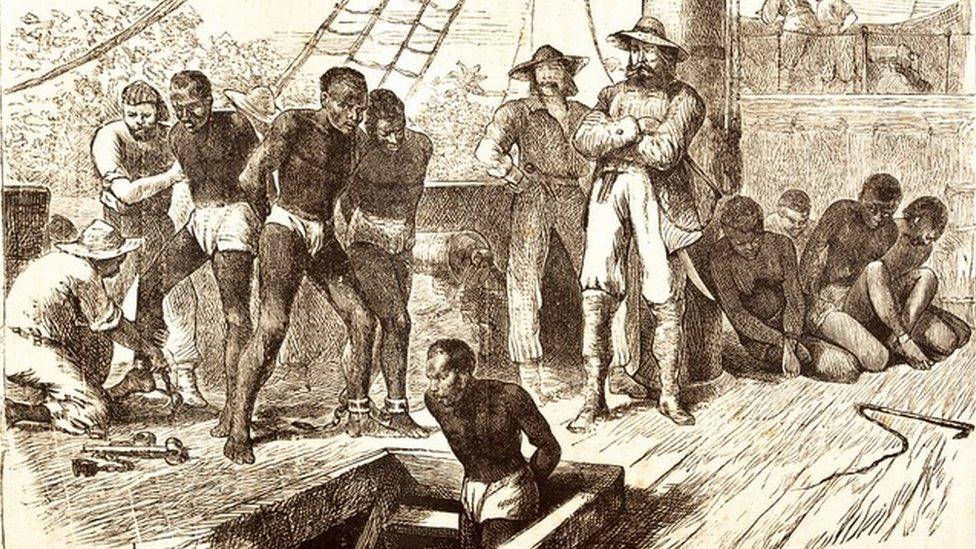University of Strathclyde acknowledges historic links to slavery
- Published
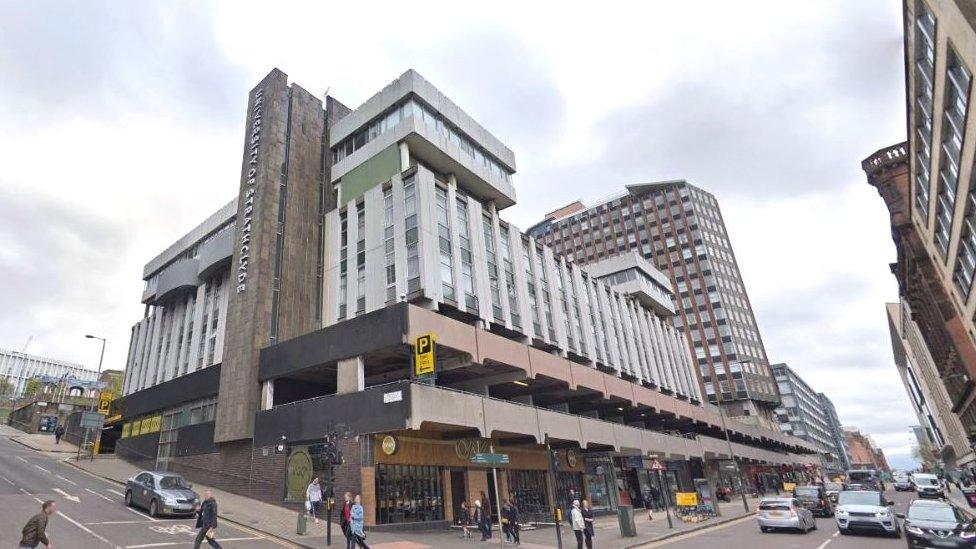
An investigation found the university's predecessor had multiple links to the transatlantic slave trade
The University of Strathclyde says it will acknowledge an "uncomfortable truth" about its historic links to slavery.
A report found that four presidents of Anderson's Institution - the forerunner to the current university - were enslavers between 1812 and 1840.
Strathclyde traces its origins to the institution, which was founded in 1796 with funding from slavery.
The university said it was engaged in activities to advance racial equality.
In response to the investigation, it said it would also expand its investment in work which raises awareness of the legacy of slavery in the city of Glasgow.
Anderson's institution was created from a bequest by Professor John Anderson, who wished to create "a place of useful learning" after he left the University of Glasgow.
However, he left insufficient funds and the 81 Trustees in his will were left to raise the remaining money.
A report by Professor Richard Finlay, the head of the School of Humanities at the University of Strathclyde, found that some of the funds came from Glasgow merchants who profited from the labour of African slaves.
Prof Finlay said: "Anderson's Institution was founded in a city that was still sucking in the profits from slavery.
"Glasgow's merchants, through ruthless efficiency and business innovation, established themselves by the 1760s as the main port in the United Kingdom for the tobacco trade.
"The Tobacco Lords did not just profit from the labour of enslaved Africans, they actively promoted and extended the use of enslaved labour through the supply of credit and loans for plantation development."
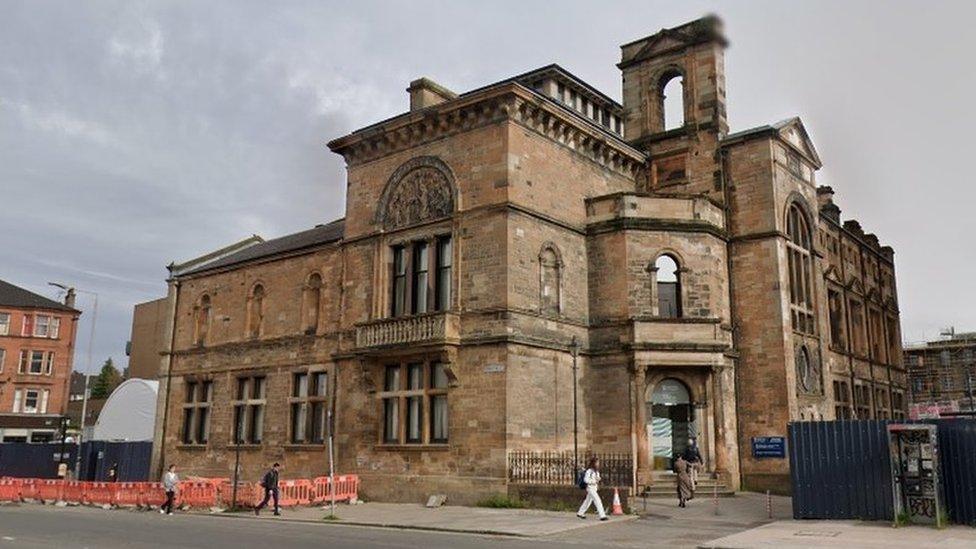
The former medical building of Anderson's Institution is now part of the University of Glasgow
The report also identified individuals in the University's past with links to slavery who donated money or played a significant role in the institution's governance.
These included four past presidents who were members of the Glasgow West India Association - a group that lobbied in favour of slavery before the Abolition of Slavery Act 1833.
University principal Professor Sir Jim McDonald said: "Today the University of Strathclyde prides itself on being a socially progressive institution that champions equality and diversity.
"As an institution so closely entwined with the City of Glasgow, it was perhaps inevitable that there would be connections to the abomination that is slavery.
"It is nonetheless shocking and provides new context regarding the university's foundational story.
"It is only right that we acknowledge this uncomfortable truth and to recognise and accept that much of our city's, and our nation's, history and prosperity has been built through the exploitation of other peoples and this is deeply regrettable."
Related topics
- Published5 October 2023
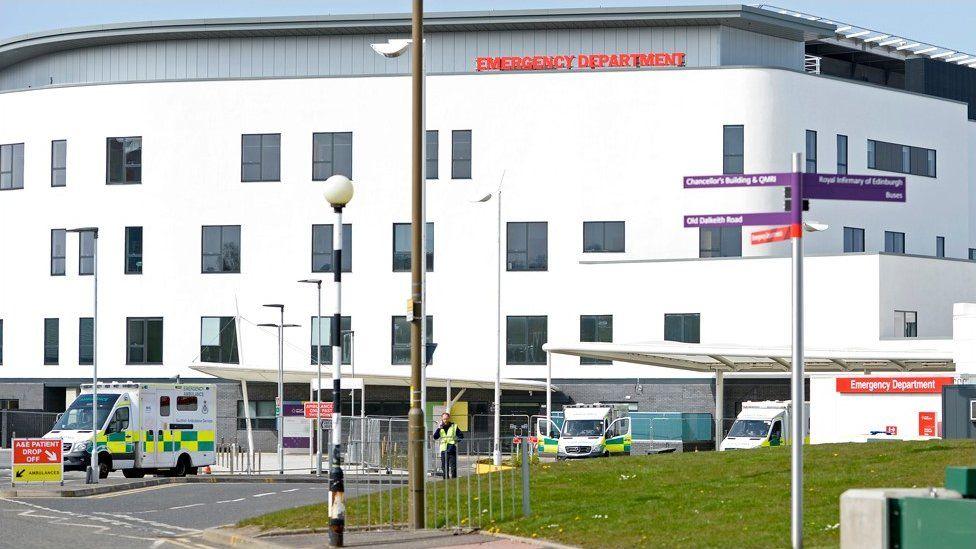
- Published17 October 2022
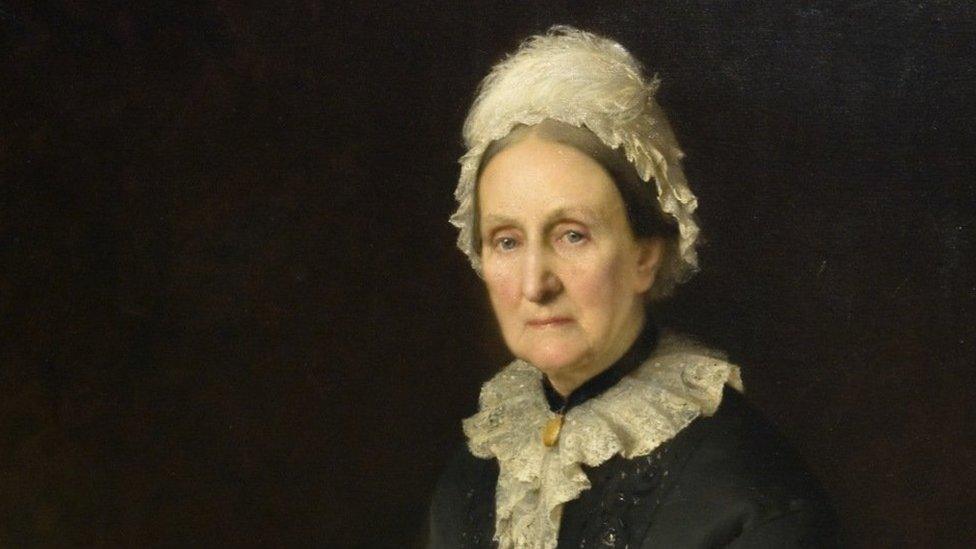
- Published16 September 2018
